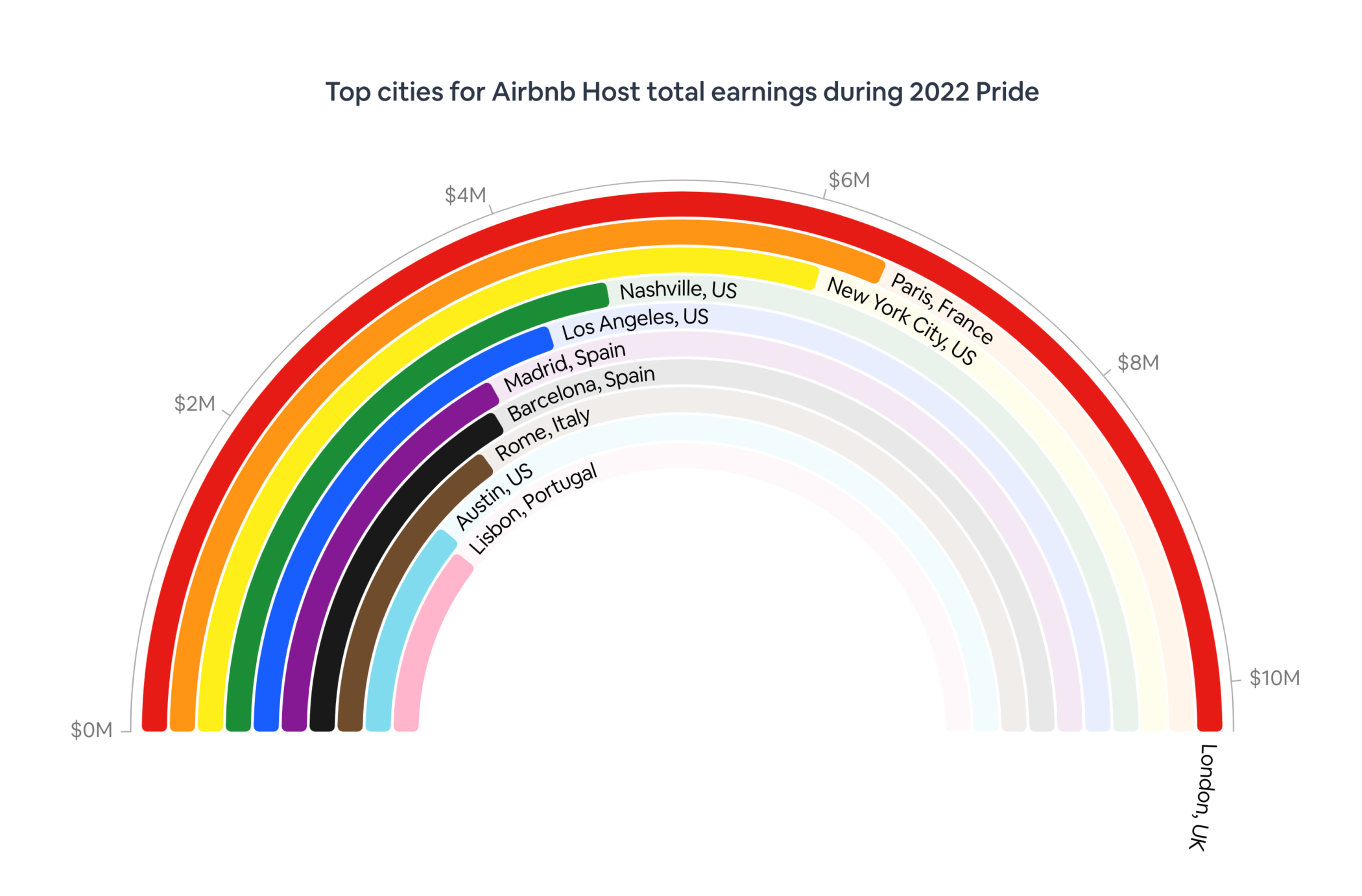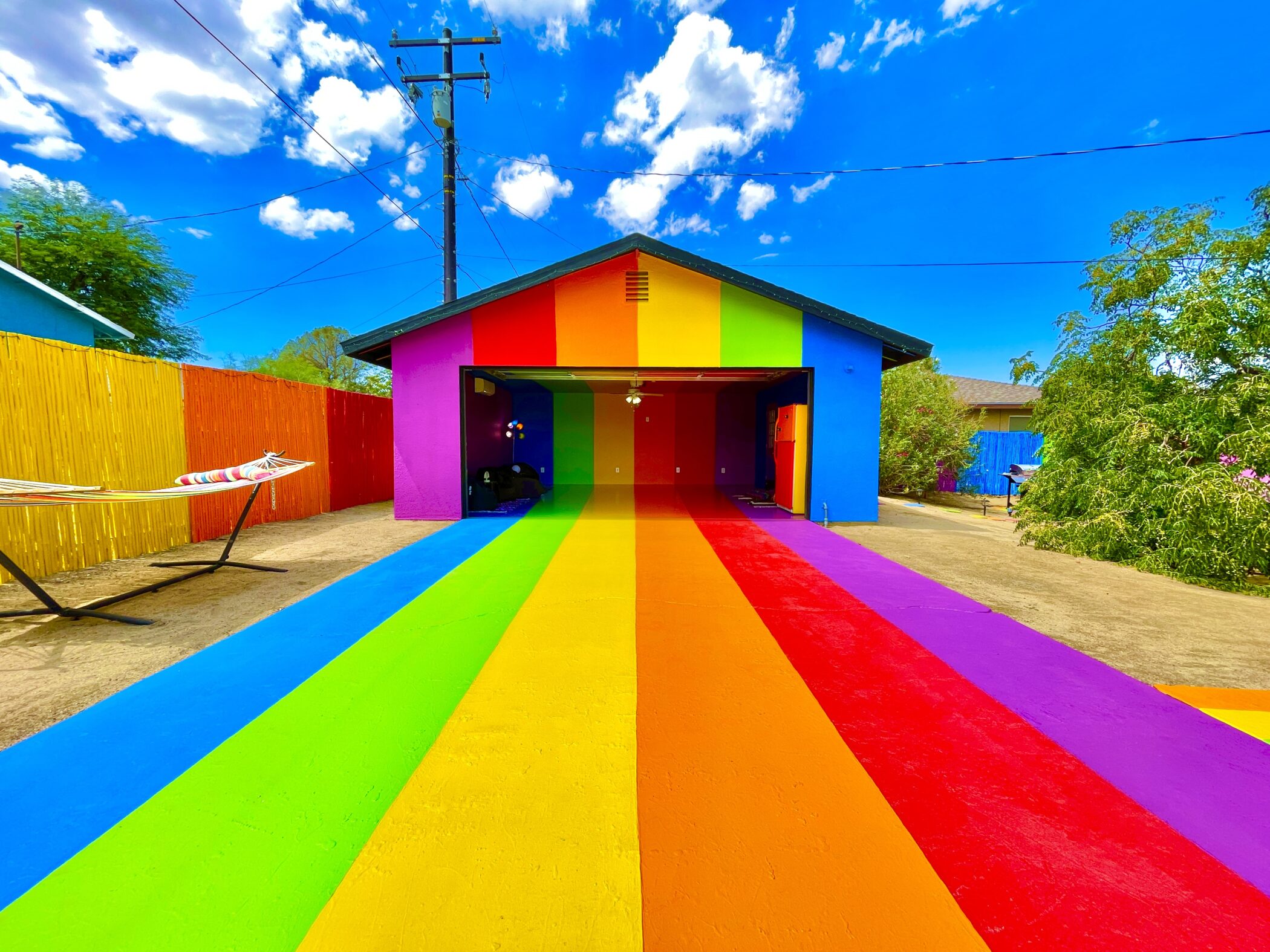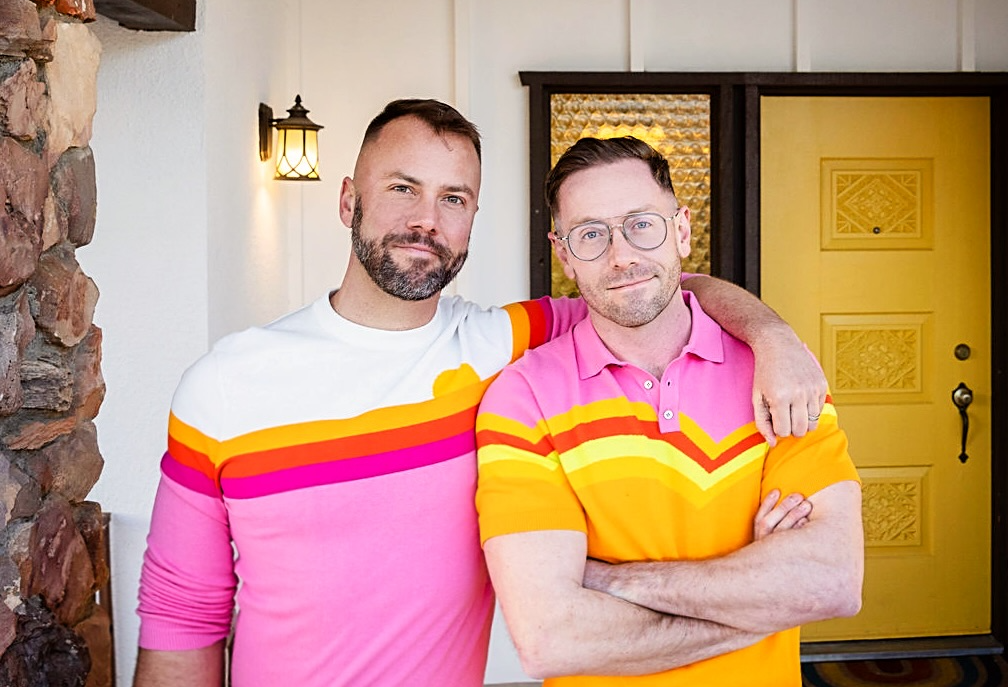Airbnb continues to stand with the LGBTQ+ community, championing values of love, acceptance, and diversity via inclusive language and policies that fight discrimination. Olivia Palamountain reports
More Airbnb hosts are embodying the platform’s commitment to diversity and inclusivity than ever before, says the company, as it reports a significant increase in hosts using LGBTQ+ inclusive language in their profiles.
An uplift of approximately 90 per cent since 2017, this rise nearly doubles the total number of hosts now promoting belonging within Airbnb‘s global community.
This clear and growing display of inclusivity and unity is clearly resonating with LGBTQ+ travellers. Not only do findings from Morning Consult Brand Intelligence show that 41% per cent of LGBTQ+ respondents who travel identify as Airbnb users (8 per cent higher compared to the overall percentage of US leisure travellers) but in 2022, Airbnb hosts collectively earned more than US$77 million during Pride celebrations by welcoming LGBTQ+ guests from around the world.

The top cities for earnings during Pride 2022 were London, Paris, New York and Nashville. Airbnb believes in “the power of community and the importance of fostering spaces where everyone can feel welcome”, says a statement on the company website.
Airbnb believes in “the power of community and the importance of fostering spaces where everyone can feel welcome”, says a statement on the company website.
In line with this philosophy, over the last several years, Airbnb has implemented a number of programs and policies to build inclusion and fight discrimination.
This includes instituting the Airbnb Community Commitment, requiring everyone who uses Airbnb to agree to treat each other with respect and without judgment or bias. All prospective Hosts and guests must agree to the Community Commitment and to follow our Nondiscrimination Policy in order to join the platform. To date, more than 2.5 million people have been denied access to, or removed from the Airbnb platform for declining to agree to the Community Commitment.
All prospective Hosts and guests must agree to the Community Commitment and to follow our Nondiscrimination Policy in order to join the platform. To date, more than 2.5 million people have been denied access to, or removed from the Airbnb platform for declining to agree to the Community Commitment.
Airbnb also provides inclusion resources for Hosts, designed to help them welcome guests from all backgrounds, particularly those from historically marginalised communities.

